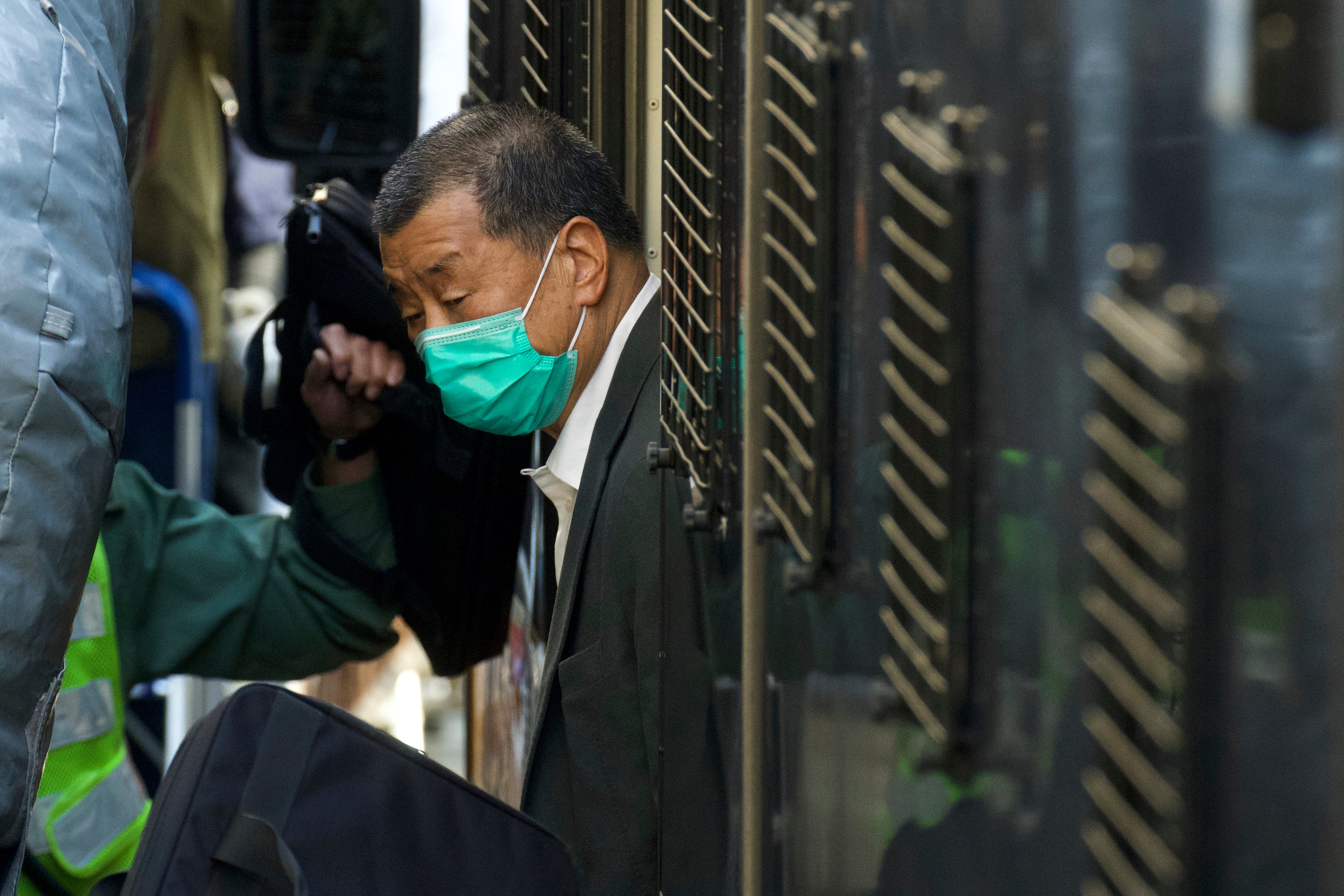Hong Kong government critic Jimmy Lai returns to court
Prominent Hong Kong democracy advocate and newspaper founder Jimmy Lai has returned to court to contest an attempt by the government to keep him in jail while facing charges under a sweeping new national security law

Your support helps us to tell the story
From reproductive rights to climate change to Big Tech, The Independent is on the ground when the story is developing. Whether it's investigating the financials of Elon Musk's pro-Trump PAC or producing our latest documentary, 'The A Word', which shines a light on the American women fighting for reproductive rights, we know how important it is to parse out the facts from the messaging.
At such a critical moment in US history, we need reporters on the ground. Your donation allows us to keep sending journalists to speak to both sides of the story.
The Independent is trusted by Americans across the entire political spectrum. And unlike many other quality news outlets, we choose not to lock Americans out of our reporting and analysis with paywalls. We believe quality journalism should be available to everyone, paid for by those who can afford it.
Your support makes all the difference.Prominent Hong Kong democracy advocate and newspaper founder Jimmy Lai returned to court Monday to contest an attempt by the government to keep him in jail while facing charges under a sweeping new national security law.
Lai was brought to the Court of Final Appeal in a prison van and entered through an inflatable tunnel virtually connected to the van’s door as large numbers of journalists sought to capture the scene.
Lai was arrested last month in a sweep against pro-democracy activists accused over their involvement in 2019 anti-government protests. First refused bail, Lai was released on appeal, leading to attacks on the judiciary from the ruling Communist Party’s mouthpiece People’s Daily. He was returned to jail on New Year's Eve awaiting a new hearing.
Hong Kong has jailed several pro-democracy activists in recent months, including student protest leaders Joshua Wong and Agnes Chow, for their involvement in the anti-government protests.
The national security law was imposed on Hong Kong by Beijing after the city's local legislature was unable to overcome opposition to its enactment. Opponents see the law as a betrayal of China's pledge to maintain the city's legal, civil and human rights for 50 years after the handover from British colonial rule in 1997.
The law criminalizes acts of subversion, secession, terrorism and collusion with foreign powers to intervene in the city’s affairs, effectively curbing most opposition political activity and subjecting private speech and social media postings to possible criminal punishment. Serious offenders could face up to life imprisonment.
Lai, 72, made his fortune in the retail clothing trade before branching out into media. He stepped down as publisher of the Apple Daily newspaper but the publication remains a popular forum for opposition views in a media landscape dominated by Beijing-backed outlets.